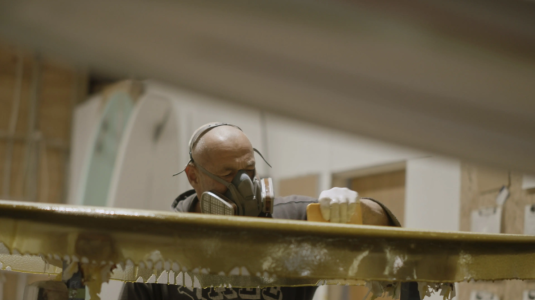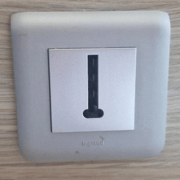The Rise of the Silver Startups: How Retirees are Secretly Dominating the Startup Scene in Australia!
By
Ash.S
- Replies 7
The golden years are often portrayed as a time for relaxation and leisure, a well-deserved break after decades of hard work. However, for a growing number of Australian retirees, this period of life is becoming synonymous with innovation, entrepreneurship, and business success. It's a trend that's reshaping the traditional image of retirement and proving that age is just a number when it comes to business acumen.
In Australia, retirees are not just dipping their toes into the entrepreneurial waters; they're making waves, representing over 30% of the country's successful startups each year. This is a testament to the fact that the drive to create and succeed doesn't retire when you do. Australian mature-aged entrepreneurs are not just dabbling in small ventures; they are making a substantial impact, contributing $11.9 billion per annum to the Australian economy through over 379,000 businesses. Each year, approximately 14,000 new businesses are launched by this demographic, showcasing that mature-aged entrepreneurship is the fastest-growing sector of entrepreneurship in the country.
A groundbreaking survey by Thriday*, an innovative platform that streamlines banking, accounting, and tax for small businesses, has shed light on the real motivations driving this surge*. With over 6,000 Australian entrepreneurs sharing their insights, this comprehensive study conducted from May 2023 to May 2024 offers a revealing look at the forces shaping the future of Australian small businesses*.
Flexibility and Creativity: The New Business Norms
Gone are the days when entrepreneurship meant being shackled to a desk in a drab office. An impressive 49.9% of survey respondents are breaking free from the traditional office setup*, opting instead for the comfort of home-based or remote work environments. This shift not only reflects a desire for a better work-life balance but also highlights the changing landscape of where and how we work.
Art and creativity are no longer relegated to hobbies or side projects. They're at the forefront of business ventures, with 32.5% of new entrepreneurs driven by their passions to create and innovate*. This surge in creativity-fueled industries is a testament to the evolving priorities of today's business owners, who value personal fulfillment as much as financial success. This trend is particularly true for seniors in many cases.
Moreover, the concept of growth is being redefined. A significant 43.2% of respondents are planning to start small and scale their businesses over time*. This preference for sustainable growth over rapid and often risky expansion speaks volumes about the cautious optimism that characterises the current entrepreneurial mindset.
Technology and Social Impact: The Twin Pillars of Innovation
The tech wave is sweeping through the Australian business landscape, with a staggering 76.6% of entrepreneurs either excited about or open to integrating advanced technology into their operations*. This embrace of tech innovation is a clear indicator of the readiness to adapt and evolve in an increasingly digital world.
But it's not just about the bottom line. A notable 37.6% of business owners are prioritising making a significant social or environmental impact*. This reflects a broader trend of 'conscious capitalism,' where profit is balanced with purpose, and businesses are seen as a force for good in society.
Financial Stability: A Key Goal Amid Economic Uncertainty
In a challenging economic climate, financial stability remains a cornerstone of entrepreneurial ambition*. Nearly half of those surveyed (45.8%) aim to build businesses that are not just profitable but also financially resilient in the long term. This goal underscores the importance of creating a solid foundation that can weather economic storms.
Despite the inherent risks of starting a business, 33.4% of entrepreneurs are willing to embrace financial uncertainty. This willingness to take calculated risks is a hallmark of the entrepreneurial spirit, reflecting confidence in their ability to navigate the ups and downs of business ownership.
A New Era of Australian Entrepreneurship
These findings challenge the traditional narrative of entrepreneurship as a pursuit driven solely by profit. Instead, they paint a picture of a dynamic and diverse group of individuals who are motivated by a mix of creativity, technology, and social consciousness.
So, what makes seniors so successful in the startup world?
Let's dive into the factors that are turning retirees into the dark horses of the Australian business landscape.
Industry and Life Experience
Retirees bring a wealth of knowledge to the table. With years, if not decades, of industry experience, they have a deep understanding of market needs and the operational know-how to navigate business challenges*. Their life experience also equips them with the wisdom to make sound decisions and the resilience to weather the ups and downs of entrepreneurship.
Broad Networks
Throughout their careers, older Australians have built extensive networks that can be invaluable when starting a business. These connections provide a solid foundation for marketing, partnerships, advice, and mentorship*, all of which are crucial for a fledgling company's growth.
Financial Advantage
Financial stability is a significant asset for retirees looking to start a business. With mortgages often paid off and children financially independent, they can invest in their ventures without the pressure that younger entrepreneurs might face. This financial freedom allows for more calculated risks and can lead to more sustainable business growth*.
Positive Mindset and Motivation
Retirees are frequently driven by goals beyond financial gain*. Whether it's solving a problem, giving back to the community, or simply bringing a dream to life, their motivations are diverse and deeply personal. This positive mindset, coupled with a strong sense of self-belief and determination, is a powerful combination for success.
Passion Pursuit
Retirement provides the perfect opportunity to turn passions into profitable ventures. Whether it's a lifelong hobby or a newfound interest, starting a business related to personal passions can be incredibly fulfilling and can also fill a niche in the market.
However, it's not without its challenges. Starting a business requires careful planning and consideration*, especially when it involves your nest egg.
Here are some key tips for retirees considering the entrepreneurial path:
Be Cautious with Retirement Savings
It's crucial to avoid risking your entire retirement savings on a new business venture. Diversify your investments and be prepared for any outcome. Remember, the goal is to enhance your retirement, not jeopardise it.
Embrace Technology
The business world is increasingly digital, and keeping up with technology is essential*. Take advantage of educational resources to stay current with the latest tools and platforms that can benefit your business.
Consider Your Pension
Understand how a successful business might impact your Age Pension or other benefits. Consult with financial experts to navigate the potential tax implications and ensure you're making informed decisions.
Plan for Personal Benefits
Being self-employed means you won't have the same benefits as traditional employment, such as sick leave or superannuation contributions. Plan accordingly to ensure you can enjoy time off and maintain a comfortable lifestyle*.

Retirement can be the beginning of an exciting new chapter for aspiring entrepreneurs. If you have a business idea that ignites your passion, seek professional advice from an accountant or financial adviser before taking the plunge. And who knows? You might just find that starting a business is more rewarding than you could have imagined.
While we do our best, we’re not financial experts, and nothing in this article should be construed as financial advice.
*Please note, members, that this is a sponsored article. All content of ours that has an asterisk next to it means we may get a commission when you click on a link – at no cost to you! We do this to assist with the costs of running the SDC. Thank you!
In Australia, retirees are not just dipping their toes into the entrepreneurial waters; they're making waves, representing over 30% of the country's successful startups each year. This is a testament to the fact that the drive to create and succeed doesn't retire when you do. Australian mature-aged entrepreneurs are not just dabbling in small ventures; they are making a substantial impact, contributing $11.9 billion per annum to the Australian economy through over 379,000 businesses. Each year, approximately 14,000 new businesses are launched by this demographic, showcasing that mature-aged entrepreneurship is the fastest-growing sector of entrepreneurship in the country.
A groundbreaking survey by Thriday*, an innovative platform that streamlines banking, accounting, and tax for small businesses, has shed light on the real motivations driving this surge*. With over 6,000 Australian entrepreneurs sharing their insights, this comprehensive study conducted from May 2023 to May 2024 offers a revealing look at the forces shaping the future of Australian small businesses*.
Flexibility and Creativity: The New Business Norms
Gone are the days when entrepreneurship meant being shackled to a desk in a drab office. An impressive 49.9% of survey respondents are breaking free from the traditional office setup*, opting instead for the comfort of home-based or remote work environments. This shift not only reflects a desire for a better work-life balance but also highlights the changing landscape of where and how we work.
Art and creativity are no longer relegated to hobbies or side projects. They're at the forefront of business ventures, with 32.5% of new entrepreneurs driven by their passions to create and innovate*. This surge in creativity-fueled industries is a testament to the evolving priorities of today's business owners, who value personal fulfillment as much as financial success. This trend is particularly true for seniors in many cases.
Moreover, the concept of growth is being redefined. A significant 43.2% of respondents are planning to start small and scale their businesses over time*. This preference for sustainable growth over rapid and often risky expansion speaks volumes about the cautious optimism that characterises the current entrepreneurial mindset.
Technology and Social Impact: The Twin Pillars of Innovation
The tech wave is sweeping through the Australian business landscape, with a staggering 76.6% of entrepreneurs either excited about or open to integrating advanced technology into their operations*. This embrace of tech innovation is a clear indicator of the readiness to adapt and evolve in an increasingly digital world.
But it's not just about the bottom line. A notable 37.6% of business owners are prioritising making a significant social or environmental impact*. This reflects a broader trend of 'conscious capitalism,' where profit is balanced with purpose, and businesses are seen as a force for good in society.
Financial Stability: A Key Goal Amid Economic Uncertainty
In a challenging economic climate, financial stability remains a cornerstone of entrepreneurial ambition*. Nearly half of those surveyed (45.8%) aim to build businesses that are not just profitable but also financially resilient in the long term. This goal underscores the importance of creating a solid foundation that can weather economic storms.
Despite the inherent risks of starting a business, 33.4% of entrepreneurs are willing to embrace financial uncertainty. This willingness to take calculated risks is a hallmark of the entrepreneurial spirit, reflecting confidence in their ability to navigate the ups and downs of business ownership.
A New Era of Australian Entrepreneurship
These findings challenge the traditional narrative of entrepreneurship as a pursuit driven solely by profit. Instead, they paint a picture of a dynamic and diverse group of individuals who are motivated by a mix of creativity, technology, and social consciousness.
So, what makes seniors so successful in the startup world?
Let's dive into the factors that are turning retirees into the dark horses of the Australian business landscape.
Industry and Life Experience
Retirees bring a wealth of knowledge to the table. With years, if not decades, of industry experience, they have a deep understanding of market needs and the operational know-how to navigate business challenges*. Their life experience also equips them with the wisdom to make sound decisions and the resilience to weather the ups and downs of entrepreneurship.
Broad Networks
Throughout their careers, older Australians have built extensive networks that can be invaluable when starting a business. These connections provide a solid foundation for marketing, partnerships, advice, and mentorship*, all of which are crucial for a fledgling company's growth.
Financial Advantage
Financial stability is a significant asset for retirees looking to start a business. With mortgages often paid off and children financially independent, they can invest in their ventures without the pressure that younger entrepreneurs might face. This financial freedom allows for more calculated risks and can lead to more sustainable business growth*.
Positive Mindset and Motivation
Retirees are frequently driven by goals beyond financial gain*. Whether it's solving a problem, giving back to the community, or simply bringing a dream to life, their motivations are diverse and deeply personal. This positive mindset, coupled with a strong sense of self-belief and determination, is a powerful combination for success.
Passion Pursuit
Retirement provides the perfect opportunity to turn passions into profitable ventures. Whether it's a lifelong hobby or a newfound interest, starting a business related to personal passions can be incredibly fulfilling and can also fill a niche in the market.
However, it's not without its challenges. Starting a business requires careful planning and consideration*, especially when it involves your nest egg.
Here are some key tips for retirees considering the entrepreneurial path:
Be Cautious with Retirement Savings
It's crucial to avoid risking your entire retirement savings on a new business venture. Diversify your investments and be prepared for any outcome. Remember, the goal is to enhance your retirement, not jeopardise it.
Embrace Technology
The business world is increasingly digital, and keeping up with technology is essential*. Take advantage of educational resources to stay current with the latest tools and platforms that can benefit your business.
Consider Your Pension
Understand how a successful business might impact your Age Pension or other benefits. Consult with financial experts to navigate the potential tax implications and ensure you're making informed decisions.
Plan for Personal Benefits
Being self-employed means you won't have the same benefits as traditional employment, such as sick leave or superannuation contributions. Plan accordingly to ensure you can enjoy time off and maintain a comfortable lifestyle*.
Key Takeaways
- Retirees are creating successful start-ups in Australia, with over 30% of new businesses led by mature-aged entrepreneurs.
- Older Australians bring valuable industry and life experience, broad networks, financial advantages, and a positive mindset to the business landscape.
- The largest- ever survey of over 5,000 Australian entrepreneurs* reveals flexibility, creativity, and technology as significant motivations for starting a business.
- Nearly half of the respondents are moving away from traditional office work in favour of home-based or remote alternatives.
- A growing number of business owners are prioritising social and environmental impact alongside aiming for financial stability.
- Retirees considering entrepreneurship should seek professional advice from an Accountant or Financial Planner and be aware of the impacts on pensions, benefits, and the necessity for self-managed leave and superannuation contributions.
Retirement can be the beginning of an exciting new chapter for aspiring entrepreneurs. If you have a business idea that ignites your passion, seek professional advice from an accountant or financial adviser before taking the plunge. And who knows? You might just find that starting a business is more rewarding than you could have imagined.
While we do our best, we’re not financial experts, and nothing in this article should be construed as financial advice.
*Please note, members, that this is a sponsored article. All content of ours that has an asterisk next to it means we may get a commission when you click on a link – at no cost to you! We do this to assist with the costs of running the SDC. Thank you!








